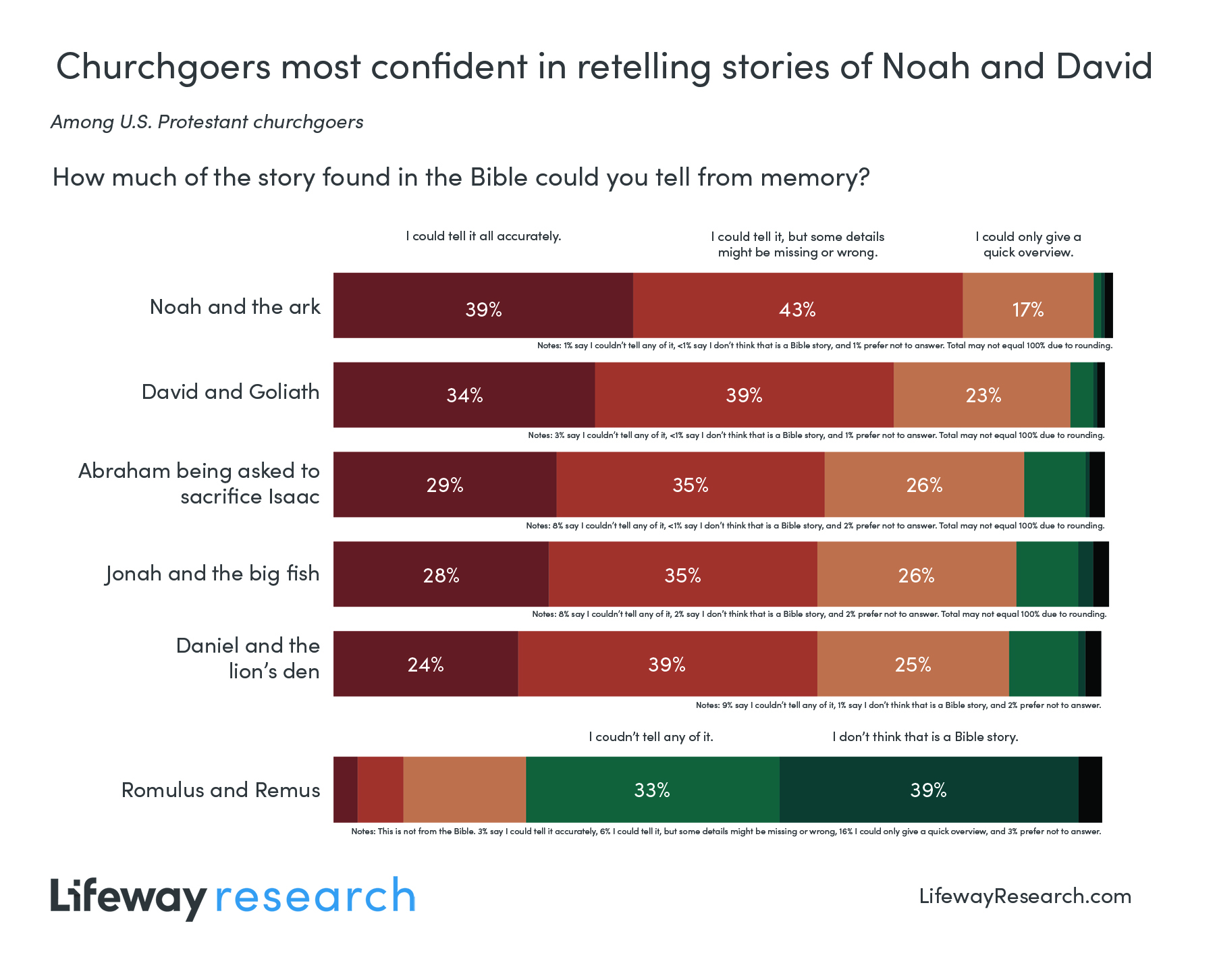More than six in 10 church-going American Protestants appear to believe that the legendary ancient Roman story of Romulus and Remus appears in Jewish scripture, according to new data from Lifeway Research.
Lifeway, a nearly 20-year-old evangelical research firm based in Brentwood, Tenn., surveyed 1,008 Americans who self-identify as Protestant and who attend church at least monthly. Lifeway released the survey, which it conducted online between Sept. 19 and Sept. 29, 2023, on Tuesday.
Just 39% of respondents didn’t think that Romulus and Remus—mythic founders of Rome, who as infants were nursed by a wolf—were part of Jewish scripture, 25% thought it could tell the story from the Bible (with 16% only able to do a quick overview), while 33% said it couldn’t tell the story at all without, apparently, knowing that the story is not biblical.
“While churchgoers may open a Bible at church, at least one in five may not be familiar with how it’s organized and what distinguishes the New Testament from the Old Testament,” stated Scott McConnell, executive director of Lifeway Research. “Some of these attendees may have spent less time in the Bible while others may not know the Bible for themselves because someone else has always been their GPS for navigating it.”
Lifeway found that about 80% of respondents shared a story from Jewish scripture—what the firm called “Old Testament”—when asked to identify their favorite story from Tanach. Some 11% responded with a story from the New Testament, which it apparently thought was part of Jewish scripture, and some 10% didn’t have a favorite story or didn’t know.
Stories about Moses and the Exodus were the most popular (13%), followed by Noah (11%), the book of Genesis (10%), and David and Goliath (8%). Respondents also favored the stories of Adam and Eve (5%), Job (4%), Ruth (4%), Joseph (3%), Jonah (3%), Daniel (3%), Esther (2%), David (2%), the book of Psalms (2%), Cain and Abel (2%), Abraham (1%), Elijah (1%) and Samson (1%), according to Lifeway.
“With many U.S. Protestant churchgoers unable to name a story from the first half of the Bible, it may come as no surprise that some are unsure about their recall of specific stories, and others are overconfident in their recollection,” Lifeway stated. “Asked about various potential stories from the Bible, churchgoers expressed varying degrees of confidence in their ability to retell a narrative, including one not from the Bible.”

Nearly three in four (74%) said they could tell the David and Goliath story from memory, with 23% saying they could only provide a “quick overview.”
The largest percentage (82%) said it could tell the story of Noah and the ark from memory, with 39% believing it could do so accurately, 43% thinking it might miss some details or get them wrong, and 17% only able to provide a quick overview.
Some 63% believe it could tell the story of Daniel and the lion’s den from memory (25% could just provide an overview), and 64% and 63% respectively could tell the story of the binding of Isaac and of Jonah and the whale from memory (26% with just a quick overview in each case).
In general, more regular church attendance and more education appeared to be associated with a better understanding of which stories are biblical and the details about those stories.


























